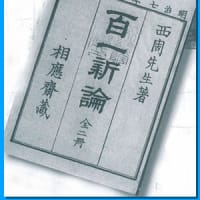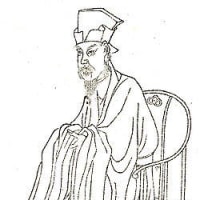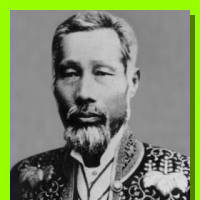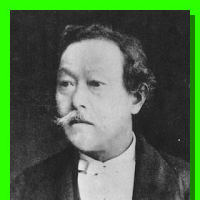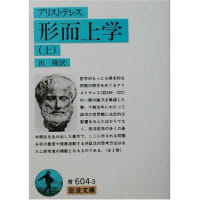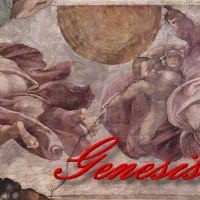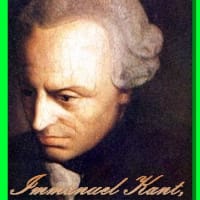
ヒポクラテス誓い
現在の『全集』は紀元前3世紀のアレキサンドリアで見つかったものを元に12世紀のビザンチンで編集された。ヒポクラテス学派の人々によって書き続けらてたものであろう。教科書、講義、研究、哲学等々、あらゆるジャンルをカバーしている。研究者、法律家、など多用な層を相手としたものである。
「ヒポクラテスの誓い」(The Hippocratic Oath)、『前兆論』(The Book of Prognostics)、「劇症状態での養生」(On Regimen in Acute Diseases)、『金言』(Aphorisms)、「空気・水・場所論」(On Airs, Waters and Places)、「整腹術」(Instruments of Reduction)、「癲癇(てんかん)論」(On The Sacred Disease)等々、あらゆるジャンルを含んでいる(Encyclopedia Britannica (1911), HIPPOCRATES, vol. V13, Encyclopedia Britannica, Inc., 519, <http://encyclopedia.jrank.org/HIG_HOR/HIPPOCRATES.html>. Retrieved on October 14, 2006)。
少し横道に逸れる。癲癇(てんかん)が「聖なる病」(the Sacred Disease)と古代で呼ばれていた理由は、癲癇の発作は、悪魔にとらえられたことによるが、病状の中に神の声が聞こえて、神により回復させられると信じらていたからである。
古代、エジプトを含むギリシャ世界には二つの信仰があった。一つがイシス(女性で癒しの神)、もう一つがセラピス(伝統的オソラピス信仰)。この二つの信仰が主に絶望とされた患者を助けていった。
その後、エジプトのイムホテップとギリシャのアスクレピオスの医神が奇跡といわれる病気を治癒させていった。それが神聖な癒しの術を磨かせ神殿による医療として発展していった。つまり神と医療の共存が相互に成り立っていた。紀元前480年頃になってヒポクラテスが癲癇、錯乱、狂気、中風など人びとを悩ませた病気の説明に超自然(神)的なものを排した。確かにアスクロピオスによる神殿治療は実際に効果はもたらしたが、病は神がかりで治るものではないと、ヒポクラテスは信じ、治療効果は自然(本性)に潜む力であると見抜いたからである。そしてさらに「空気・水・場所」の環境が人間の健康と病気に関係していることを医学概念としたのである(http://www.nmnweb.net/hipo/hipo39.html、DR.中島氏のブログはすごい。とくにヒポクラテスに関するものは目を見張らされる)。
ヒポクラテスが「医学の父」と言われるようになったのは、12世紀イタリアのアナグニ(Anagn)においてである(Hanson, Ann Ellis (2006), Hippocrates: The "Greek Miracle" in Medicine, Lee T. Pearcy, The Episcopal Academy, Merion, PA 19066, USA, <http://www.medicinaantiqua.org.uk/Medant/hippint.htm>. Retrieved on December 17, 2006
Hippocrates (2006), On the Sacred Disease, Internet Classics Archive: The University of Adelaide Library, <http://etext.library.adelaide.edu.au/mirror/classics.mit.edu/Hippocrates/sacred.html>. Retrieved on December 17, 2006)。
ヒポクラテスの死後の数世紀ほどは、ヒポクラテスの名声は廃れていた。しかし、ギリシャのガーレン(Galen,129 to 200 AD)がヒポクラテスの復権を果たした(Jones, W. H. S. (1868), Hippocrates Collected Works I, Cambridge Harvard University Press, <http://daedalus.umkc.edu/hippocrates/HippocratesLoeb1/page.ix.php>. Retrieved on September 28, 2006、p.35)。
中世ではアラブ人がヒポクラテスを高く評価するようになった(Leff, Samuel & Vera. Leff (1956), From Witchcraft to World Health, Camelot Press Ltd, p. 102)。西欧では、ルネッサンス後、19世紀までヒポクラテスの名声は続いた。
「ヒポクラテスの誓い」
「医神アポロン、アスクレピオス、ヒギエイア、パナケイアおよびすべての男神と女神に誓う、私の能力と判断にしたがってこの誓いと約束を守ることを。この術を私に教えた人をわが親のごとく敬い、わが財を分かって、その必要あるとき助ける。その子孫を私自身の兄弟のごとくみて、彼らが学ぶことを欲すれば報酬なしにこの術を教える。そして書きものや講義その他あらゆる方法で私の持つ医術の知識をわが息子、わが師の息子、また医の規則にもとずき約束と誓いで結ばれている弟子どもに分かち与え、それ以外の誰にも与えない。
私は能力と判断の限り患者に利益すると思う養生法をとり、悪くて有害と知る方法を決してとらない。
頼まれても死に導くような薬を与えない。それを覚らせることもしない。同様に婦人を流産に導く道具を与えない。
純粋と神聖をもってわが生涯を貫き、わが術を行う。
結石を切りだすことは神かけてしない。それを業とするものに委せる。
いかなる患家を訪れるときもそれはただ病者を利益するためであり、あらゆる勝手な戯れや堕落の行いを避ける。女と男、自由人と奴隷のちがいを考慮しない。
医に関すると否とにかかわらず他人の生活について秘密を守る。
この誓いを守りつづける限り、私は、いつも医術の実施を楽しみつつ生きてすべての人から尊敬されるであろう。もしこの誓いを破るならばその反対の運命をたまわりたい」(金沢医科大学・小川鼎三訳、http://www.kanazawa-med.ac.jp/mic/rinri/hippocrates.html)。
英文
The Oath of Hippocrates
I swear by Apollo the Physician, and Aesculapius, and Health, and All-heal, and all the gods and goddesses, that, according to my ability and judgment, I will keep this oath and this stipulation-to reckon him who taught me this art equally dear to me as my parents, to share my substance with him, and relieve his necessities if required; to look upon his offspring in the same footing as my own brothers, and to teach them this art, if they shall wish to learn it, without fee or stipulation; and that by precept, lecture, and every other mode of instruction, I will impart a knowledge of the art to my own sons, and those of my teachers, and to disciples bound by a stipulation and oath according to the law of medicine, but to none others. I will follow that system of regiment which, according to my ability and judgment, I consider for the benefit of my patients, and abstain from whatever is deleterious and mischievous. I will give no deadly medicine to anyone if asked, nor suggest any such counsel ; and in like manner I will not give to a woman a pessary to produce abortion. With purity and with holiness I will pass my life and practice my art. I will not cut persons laboring under the stone, but will leave this to be done by men who are practitioners of this work. Into whatever houses I enter, I will go into them for the benefit of the sick, and will abstain from every voluntary act of mischief and corruption of females or males, of freemen and slaves. Whatever, in connection with my professional practice, or not in connection with it, I see or hear, in the life of men, which ought not to be spoken of abroad, I will not divulge, as reckoning that all such should be kept secret. While I continue to keep this oath unviolated, may it be granted to me to enjoy life and the practice of the art, respected by all men, in all times ! But should I trespass and violate this oath, may the reverse be my lot!
現在の『全集』は紀元前3世紀のアレキサンドリアで見つかったものを元に12世紀のビザンチンで編集された。ヒポクラテス学派の人々によって書き続けらてたものであろう。教科書、講義、研究、哲学等々、あらゆるジャンルをカバーしている。研究者、法律家、など多用な層を相手としたものである。
「ヒポクラテスの誓い」(The Hippocratic Oath)、『前兆論』(The Book of Prognostics)、「劇症状態での養生」(On Regimen in Acute Diseases)、『金言』(Aphorisms)、「空気・水・場所論」(On Airs, Waters and Places)、「整腹術」(Instruments of Reduction)、「癲癇(てんかん)論」(On The Sacred Disease)等々、あらゆるジャンルを含んでいる(Encyclopedia Britannica (1911), HIPPOCRATES, vol. V13, Encyclopedia Britannica, Inc., 519, <http://encyclopedia.jrank.org/HIG_HOR/HIPPOCRATES.html>. Retrieved on October 14, 2006)。
少し横道に逸れる。癲癇(てんかん)が「聖なる病」(the Sacred Disease)と古代で呼ばれていた理由は、癲癇の発作は、悪魔にとらえられたことによるが、病状の中に神の声が聞こえて、神により回復させられると信じらていたからである。
古代、エジプトを含むギリシャ世界には二つの信仰があった。一つがイシス(女性で癒しの神)、もう一つがセラピス(伝統的オソラピス信仰)。この二つの信仰が主に絶望とされた患者を助けていった。
その後、エジプトのイムホテップとギリシャのアスクレピオスの医神が奇跡といわれる病気を治癒させていった。それが神聖な癒しの術を磨かせ神殿による医療として発展していった。つまり神と医療の共存が相互に成り立っていた。紀元前480年頃になってヒポクラテスが癲癇、錯乱、狂気、中風など人びとを悩ませた病気の説明に超自然(神)的なものを排した。確かにアスクロピオスによる神殿治療は実際に効果はもたらしたが、病は神がかりで治るものではないと、ヒポクラテスは信じ、治療効果は自然(本性)に潜む力であると見抜いたからである。そしてさらに「空気・水・場所」の環境が人間の健康と病気に関係していることを医学概念としたのである(http://www.nmnweb.net/hipo/hipo39.html、DR.中島氏のブログはすごい。とくにヒポクラテスに関するものは目を見張らされる)。
ヒポクラテスが「医学の父」と言われるようになったのは、12世紀イタリアのアナグニ(Anagn)においてである(Hanson, Ann Ellis (2006), Hippocrates: The "Greek Miracle" in Medicine, Lee T. Pearcy, The Episcopal Academy, Merion, PA 19066, USA, <http://www.medicinaantiqua.org.uk/Medant/hippint.htm>. Retrieved on December 17, 2006
Hippocrates (2006), On the Sacred Disease, Internet Classics Archive: The University of Adelaide Library, <http://etext.library.adelaide.edu.au/mirror/classics.mit.edu/Hippocrates/sacred.html>. Retrieved on December 17, 2006)。
ヒポクラテスの死後の数世紀ほどは、ヒポクラテスの名声は廃れていた。しかし、ギリシャのガーレン(Galen,129 to 200 AD)がヒポクラテスの復権を果たした(Jones, W. H. S. (1868), Hippocrates Collected Works I, Cambridge Harvard University Press, <http://daedalus.umkc.edu/hippocrates/HippocratesLoeb1/page.ix.php>. Retrieved on September 28, 2006、p.35)。
中世ではアラブ人がヒポクラテスを高く評価するようになった(Leff, Samuel & Vera. Leff (1956), From Witchcraft to World Health, Camelot Press Ltd, p. 102)。西欧では、ルネッサンス後、19世紀までヒポクラテスの名声は続いた。
「ヒポクラテスの誓い」
「医神アポロン、アスクレピオス、ヒギエイア、パナケイアおよびすべての男神と女神に誓う、私の能力と判断にしたがってこの誓いと約束を守ることを。この術を私に教えた人をわが親のごとく敬い、わが財を分かって、その必要あるとき助ける。その子孫を私自身の兄弟のごとくみて、彼らが学ぶことを欲すれば報酬なしにこの術を教える。そして書きものや講義その他あらゆる方法で私の持つ医術の知識をわが息子、わが師の息子、また医の規則にもとずき約束と誓いで結ばれている弟子どもに分かち与え、それ以外の誰にも与えない。
私は能力と判断の限り患者に利益すると思う養生法をとり、悪くて有害と知る方法を決してとらない。
頼まれても死に導くような薬を与えない。それを覚らせることもしない。同様に婦人を流産に導く道具を与えない。
純粋と神聖をもってわが生涯を貫き、わが術を行う。
結石を切りだすことは神かけてしない。それを業とするものに委せる。
いかなる患家を訪れるときもそれはただ病者を利益するためであり、あらゆる勝手な戯れや堕落の行いを避ける。女と男、自由人と奴隷のちがいを考慮しない。
医に関すると否とにかかわらず他人の生活について秘密を守る。
この誓いを守りつづける限り、私は、いつも医術の実施を楽しみつつ生きてすべての人から尊敬されるであろう。もしこの誓いを破るならばその反対の運命をたまわりたい」(金沢医科大学・小川鼎三訳、http://www.kanazawa-med.ac.jp/mic/rinri/hippocrates.html)。
英文
The Oath of Hippocrates
I swear by Apollo the Physician, and Aesculapius, and Health, and All-heal, and all the gods and goddesses, that, according to my ability and judgment, I will keep this oath and this stipulation-to reckon him who taught me this art equally dear to me as my parents, to share my substance with him, and relieve his necessities if required; to look upon his offspring in the same footing as my own brothers, and to teach them this art, if they shall wish to learn it, without fee or stipulation; and that by precept, lecture, and every other mode of instruction, I will impart a knowledge of the art to my own sons, and those of my teachers, and to disciples bound by a stipulation and oath according to the law of medicine, but to none others. I will follow that system of regiment which, according to my ability and judgment, I consider for the benefit of my patients, and abstain from whatever is deleterious and mischievous. I will give no deadly medicine to anyone if asked, nor suggest any such counsel ; and in like manner I will not give to a woman a pessary to produce abortion. With purity and with holiness I will pass my life and practice my art. I will not cut persons laboring under the stone, but will leave this to be done by men who are practitioners of this work. Into whatever houses I enter, I will go into them for the benefit of the sick, and will abstain from every voluntary act of mischief and corruption of females or males, of freemen and slaves. Whatever, in connection with my professional practice, or not in connection with it, I see or hear, in the life of men, which ought not to be spoken of abroad, I will not divulge, as reckoning that all such should be kept secret. While I continue to keep this oath unviolated, may it be granted to me to enjoy life and the practice of the art, respected by all men, in all times ! But should I trespass and violate this oath, may the reverse be my lot!












